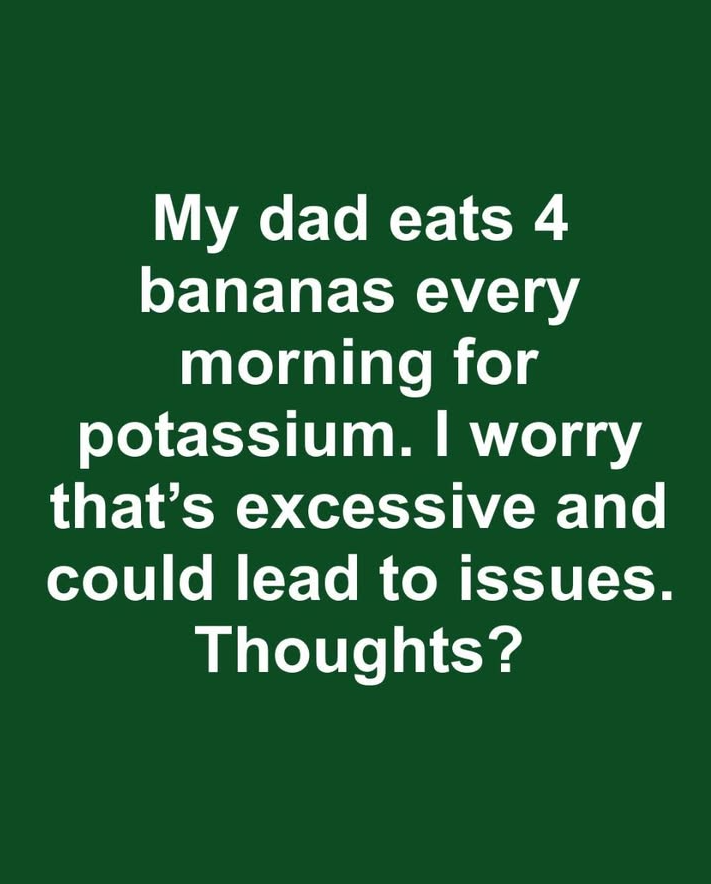
Why Potassium Matters for Your Body
Potassium isn’t just another mineral on the nutrition chart—it’s a powerhouse that keeps your body running smoothly. It regulates fluid balance, nerve signals, and muscle contractions, including the heartbeat. When your potassium levels are in check, you’re less likely to struggle with high blood pressure, kidney stones, or osteoporosis. In fact, potassium acts almost like nature’s blood pressure medication, helping to relax blood vessel walls and counter the effects of sodium.
The Nutritional Value of Bananas
Bananas have earned their reputation as the “potassium fruit.” A single medium banana contains about 422 mg of potassium, roughly 10–15% of the daily requirement. But that’s not all—bananas also provide dietary fiber, vitamin B6, vitamin C, and antioxidants. Together, these nutrients support digestion, immune strength, and sustained energy. That’s why a banana makes for a perfect post-workout snack or quick breakfast addition.
How Much Potassium Do You Really Need?
Daily potassium needs aren’t one-size-fits-all. According to dietary guidelines, women should aim for 2,600 mg per day, while men need closer to 3,400 mg. Unfortunately, most adults fall short, often consuming less than half of this amount. That gap highlights why foods like bananas, sweet potatoes, and spinach should be part of a balanced diet. They’re simple ways to keep your heart and muscles functioning at their best.
The Risk of Too Much Potassium
Like most nutrients, balance is key. While potassium is vital, overdoing it can backfire. Excess intake may cause hyperkalemia, a condition marked by dangerously high blood potassium levels. Symptoms can include muscle weakness, tingling sensations, nausea, or even irregular heartbeats. In severe cases, it can become life-threatening. People with kidney problems or those taking certain medications are at greater risk because their bodies struggle to remove excess potassium efficiently.
Video : The Banana Challenge: Can You Eat Enough to Replace Your Potassium?
What Happens If You Eat Four Bananas a Day?
Let’s do the math: four medium bananas equal about 1,688 mg of potassium. For most healthy adults, that’s perfectly safe and covers around half the daily requirement. But here’s the catch—your diet doesn’t stop at bananas. If you’re also eating potatoes, avocados, or beans, your total intake may climb much higher. For healthy individuals, this usually isn’t an issue, but for anyone with kidney disease, heart conditions, or restricted diets, eating multiple bananas daily could be too much of a good thing.
Balancing Potassium with Other Nutrients
Bananas are great, but they shouldn’t be the only star of your diet. Think of potassium as one piece of the nutritional puzzle. To achieve real balance, combine bananas with other foods like lean proteins, leafy greens, whole grains, and healthy fats. This way, you’re not just meeting potassium needs—you’re supporting your body with a full spectrum of vitamins, minerals, and macronutrients.
Recognizing Signs of Potassium Overload
How do you know if you’ve crossed the line into too much potassium? Watch out for warning signs such as:
- Fatigue or unusual weakness
- Tingling or numbness in your hands or feet
- Nausea or digestive discomfort
- Irregular or rapid heartbeats
If any of these symptoms appear—especially if you already have kidney issues—it’s time to seek medical advice.
When to Talk to a Professional
Not sure how much potassium you should be eating? A doctor or registered dietitian can give you personalized guidance. They’ll consider your overall health, medications, and daily diet to determine what’s safe. Sometimes, they may recommend lab tests to monitor potassium levels if you’re at higher risk of imbalance.
Other Great Sources of Potassium
While bananas steal the spotlight, plenty of foods can boost your potassium intake naturally:
- Sweet potatoes – packed with fiber and beta-carotene
- Spinach – loaded with iron, magnesium, and antioxidants
- Avocados – heart-healthy fats plus potassium in every serving
- Beans and lentils – double benefits of protein and potassium
- Yogurt – combines potassium with calcium for bone health
Mixing these into your weekly meals ensures variety while helping you hit your potassium goals without over-relying on bananas.
Video : The Potassium Powered Solution
Conclusion: Finding Your Healthy Banana Balance
Bananas deserve their spot as a nutrient-rich, potassium-packed snack, but moderation is key. For most people, two to four bananas a day is perfectly safe—as long as the rest of your diet stays balanced. Too many, however, especially for those with underlying health issues, can push potassium into risky territory. The real secret to good health isn’t eating endless bananas—it’s enjoying a wide variety of whole foods. So, peel wisely, mix things up, and let bananas be one part of a diverse, nutrient-rich diet.


